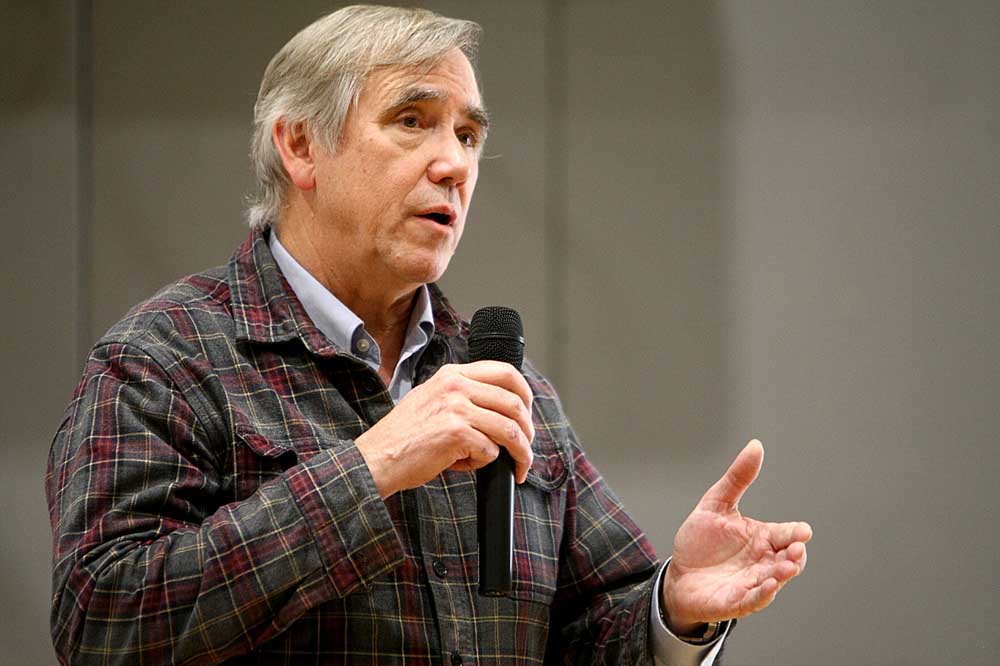Capital chatter: When Oregon priorities collide, someone loses
Published 6:15 pm Thursday, December 14, 2023

- capital chatter logo
The news headlines following this week’s Oregon Leadership Summit were all about the unveiling of a collaborative plan, involving Gov. Tina Kotek and community leaders, to revitalize Portland.
Trending
Overlooked was the message that an East Coast journalist – who described himself as a center-progressive – delivered to Oregon, a state that is largely led by progressive, liberal Democrats: If housing is the top priority, other priorities must give way, even temporarily.
The theme for the 21st annual Leadership Summit was “Thinking Big for Big Ideas.” More than 1,200 people attended the Monday event at the Moda Center in Portland. An additional 963 watched online.
Right now in America, there is a big gap between what progressives say and what they do, Derek Thompson of The Atlantic told participants.
“Over and over and over again, you see this gap between what we say [are] the values we profess and the laws and the regulations that we write,” he said. “We say that housing is a human right. But it is prohibitively expensive to build housing in the bluest states and deep blue cities. In America, we have this set of rules that makes it almost impossible to meet population growth with housing growth. …”
“We say, for example, that we have to fix climate change. That is the challenge of our generation. And yet, many of us make it almost impossible to build clean energy.”
In what amounted to a keynote Q&A, he went on: “And my thesis is that the medicine of the 20th century has become the disease of the 21st century. Environmentalists and right-thinking liberals made it so difficult to build anything.”
Trending
This aptly describes Oregon, neighboring California and Washington, and some other states.
The reasons that “deep blue” cities and states struggle so much with housing and homelessness are complex. However, Isaac Newton’s third law of motion also applies to politics and policymaking: For every action, there is a separate and equal reaction.
A prime example: Oregon’s landmark land-use regulations protect farm and forest land (to some extent, at least). Yet by restricting the amount of buildable land, these rules drive up prices for homes, schools, fire stations, business and industrial sites, and other development.
As Oregon confronts its housing crunch, Thompson pointed to a reality that people prefer to ignore: For one priority to succeed, all priorities cannot be equal.
“It’s going to be really, really hard,” he said. “And I guess this just comes back to the idea that you have to decide not just as a governor’s office, not just as a legislature, but as a public, as a citizenry, that … housing is your priority, and you’re willing to sacrifice other priorities and services to it.”
Such Oregon priorities collided last summer. House Bill 3414, which included a provision sought by Kotek to make more land available for housing, died under pressure from environmentalists in the final hours of the 2023 Legislature
On Monday, Kotek was traveling to the summit while Thompson was speaking and thus missed his remarks. (He later interviewed her onstage.) That is unfortunate, although other Democratic and Republican politicians were in the audience. Thompson coherently defined the challenges facing progressive politicians in achieving abundance – socially, economically and environmentally – for all Americans.
I talked with Kotek at a press conference later that afternoon. In response to my questions, she said people from divergent perspectives were making good progress toward a housing-production package, which is her top priority for the 2024 Legislature.
“I don’t think it’s about being progressive, conservative or whatever. I think this is about, ‘Can you make stuff work?’ Since I became governor, it was about ‘Let’s improve customer service. How is this working for people you know?’” Kotek said.
“I am very progressive when it comes to public policy. But I am pragmatic and I’m tired of things not working, so maybe where I align with Derek is, ‘Yeah, it’s not OK to just have a big idea. You actually have to make it work.’”





